The social impact of
a Correctbook
Sam founded Correctbook in 2014 with a mission to improve literacy in Africa and make writing accessible to everyone. There, we donate erasable writing materials to children who lack them.
But did you know that low literacy is also on the rise in Western countries like the Netherlands and that it’s becoming an increasingly urgent problem? Young people are writing less, and language proficiency is declining. That’s why we are combining our missions: to encourage writing, both here and there.
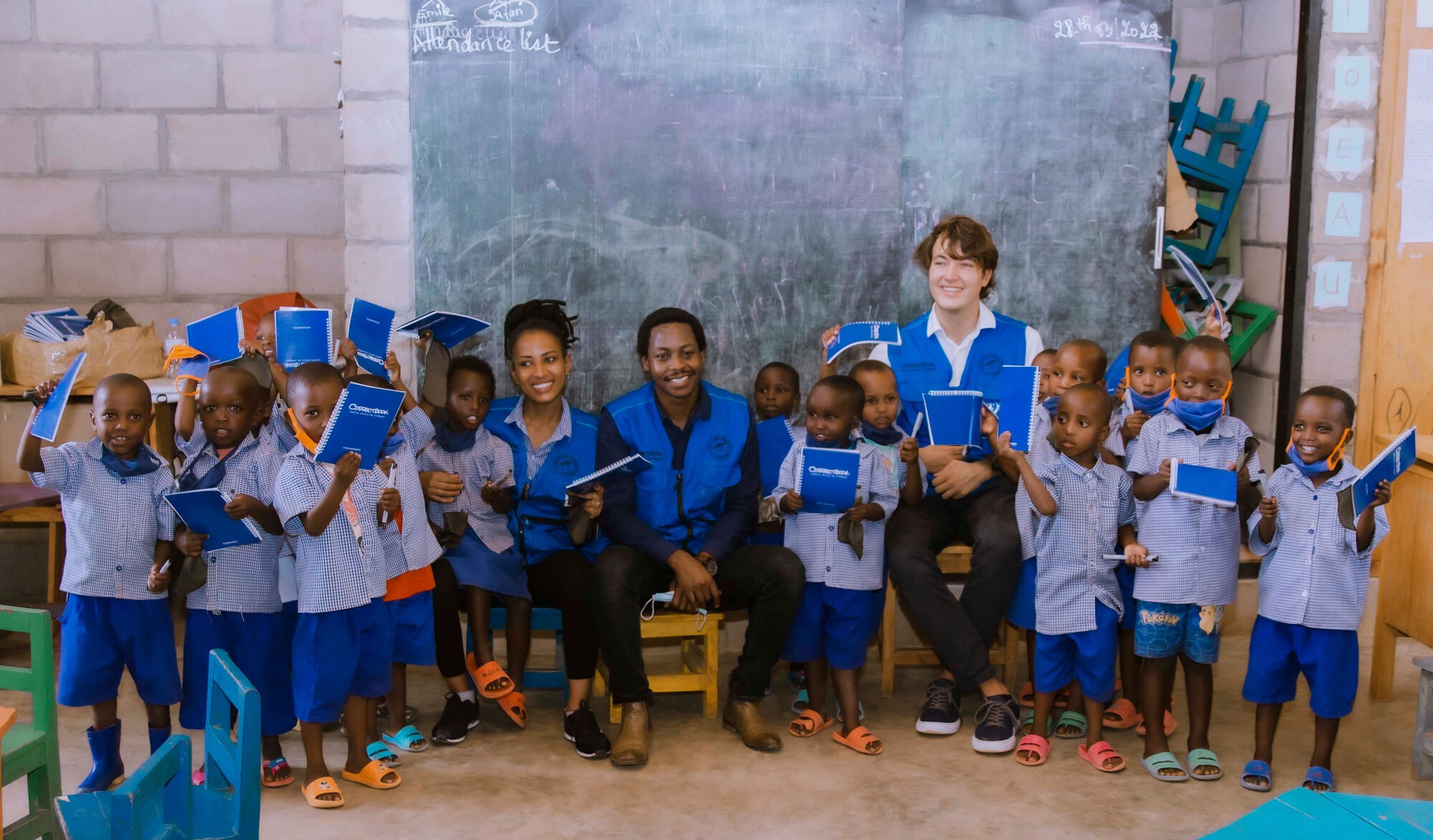
Correctbook was founded in 2014 with a clear mission: to give children in Africa the opportunity to learn how to write and, in doing so, improve their literacy. To achieve this, we donate erasable school supplies and train teachers so that every child can participate in class.
But low literacy is not only an issue in Africa. In the Netherlands, more than 3 million people¹ struggle with reading and writing. Young people are writing by hand less and less, even though this is crucial for learning, remembering, and staying creative.
With Correctbook, we want to tackle both of these challenges:
- Encouraging writing where it is disappearing.
- Providing writing materials where they are lacking.
Because everyone deserves the freedom to put their own story on paper.
Low levels of literacy in the Europe
Low levels of literacy may seem like a distant problem, but they are not. One in five adults in Europe struggles with this issue.¹ A person is considered to have low literacy skills if they have difficulty reading, writing, and/or performing basic maths.
Low literacy does not mean someone is incapable or unintelligent.
But it does make everyday tasks difficult, such as filling out a form, understanding a medicine leaflet, or writing an email. This can lead to insecurity, dependency, and missed opportunities at work, in healthcare, or simply when interacting with others.
The consequences of low literacy are significant.

Digitalization brought us far — but at what cost?
We are constantly reading, writing, and working on our screens. While this is convenient and accessible, research shows that there are also downsides. Children who write by hand retain information better and learn more deeply than when they type.
The slower, more deliberate rhythm of handwriting activates the brain in a unique way. That’s why digitalisation should never come at the expense of handwriting. Learning is more than just typing.
Why writing by hand remains essential
Handwriting is more than just letters on paper. It stimulates learning, thinking and memory for both young and old.
Did you know that...
Research shows that handwriting strengthens cognitive networks, which leads to better concentration and understanding. ²
Children who learn to write by hand develop better letter recognition, spelling, and reading skills. ³
Studies show that taking notes by hand leads to deeper processing and better memory. ⁴
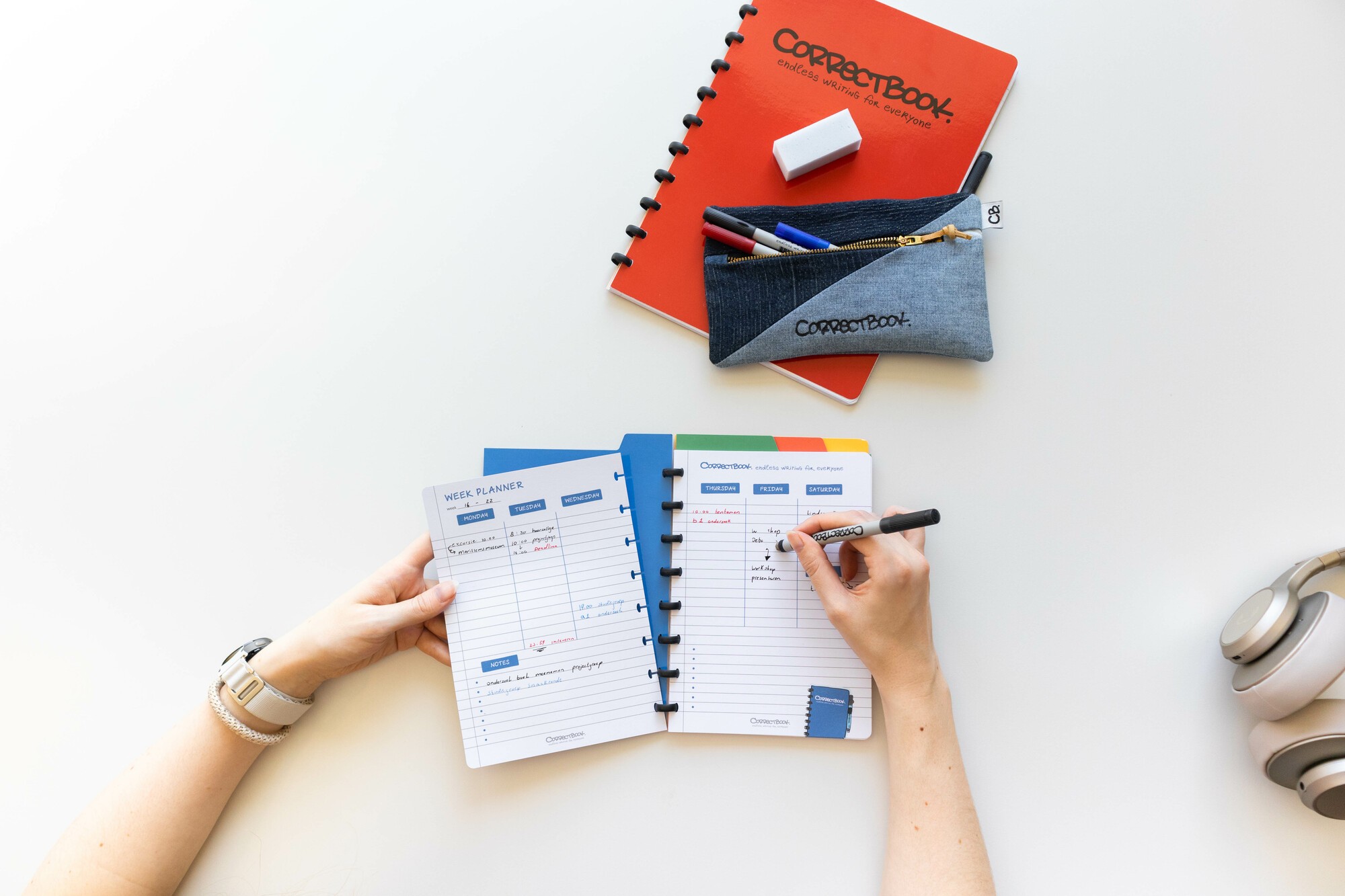

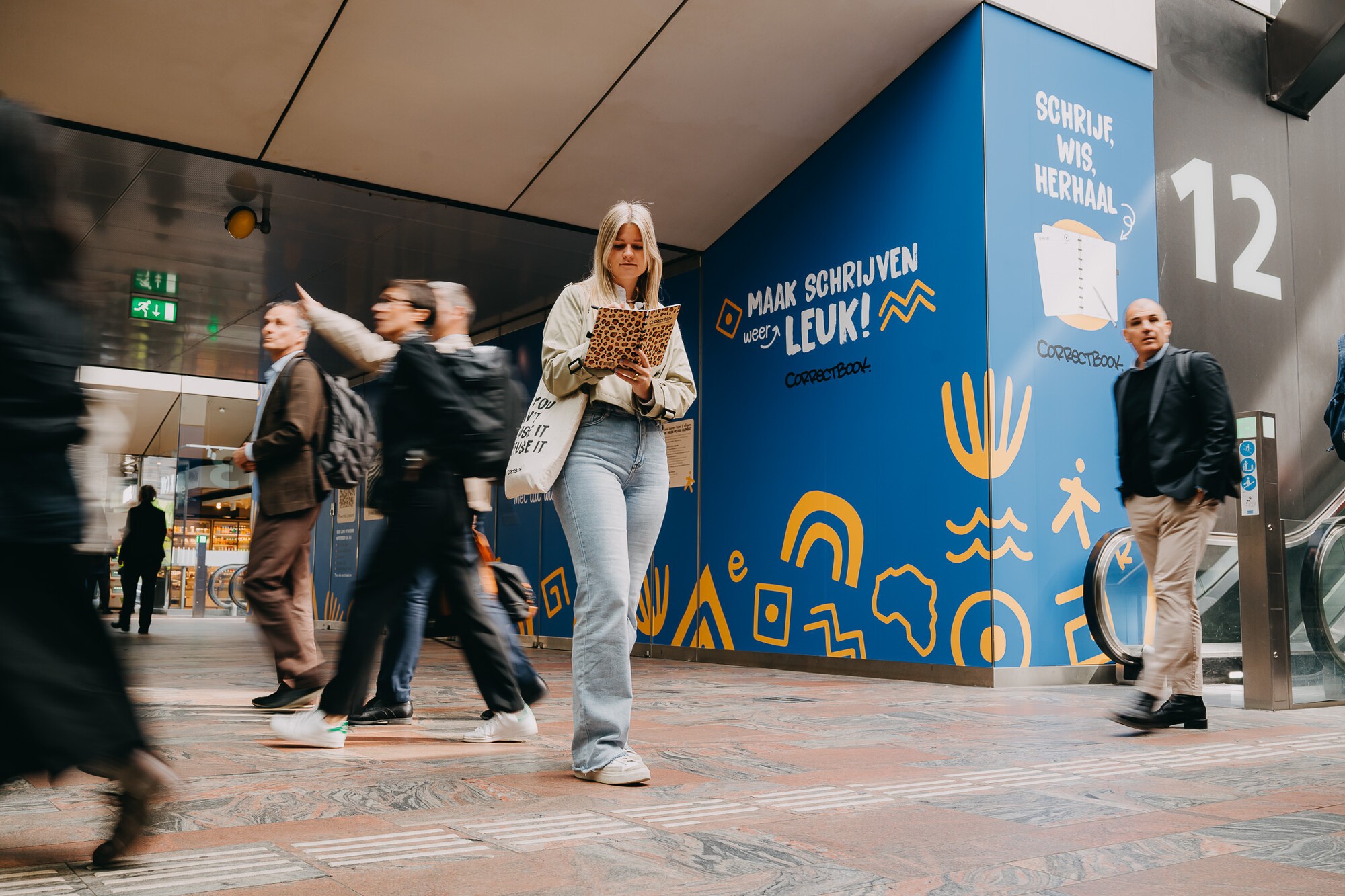
(re) Discover the joy of writing
At Correctbook, we’re strong advocates of writing not out of nostalgia, but because it’s a proven way to activate your brain and unleash your creativity. We want people to rediscover the joy of writing. Because in a world full of screens, it’s valuable to be able to think, sketch, and reflect offline.
That’s why we introduce people to Correctbook: a sustainable, versatile notebook you can organise yourself and reuse endlessly. Perfect alongside your digital devices for notes, plans, or creative ideas. This makes writing not only more sustainable, but also more accessible and a lot more fun.
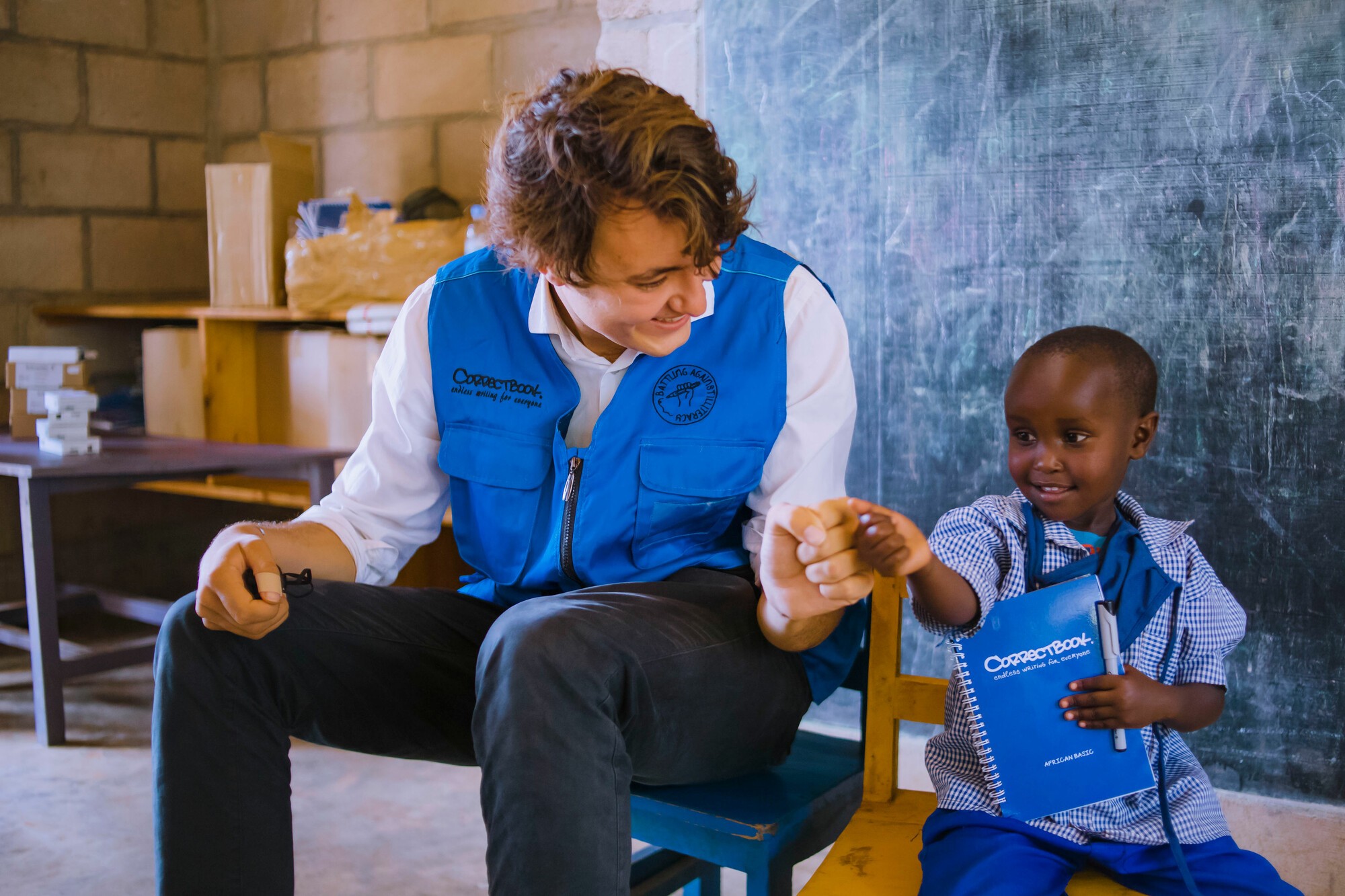

Our global mission
Correctbook was founded with one clear mission:
to make writing accessible to everyone.
While we aim to make writing fun again in Europe, in several African countries we are first making it possible. Worldwide, 250 million children cannot read or write often simply because they lack writing materials. ⁵ This means millions of children are being denied something essential: the chance to grow up literate.
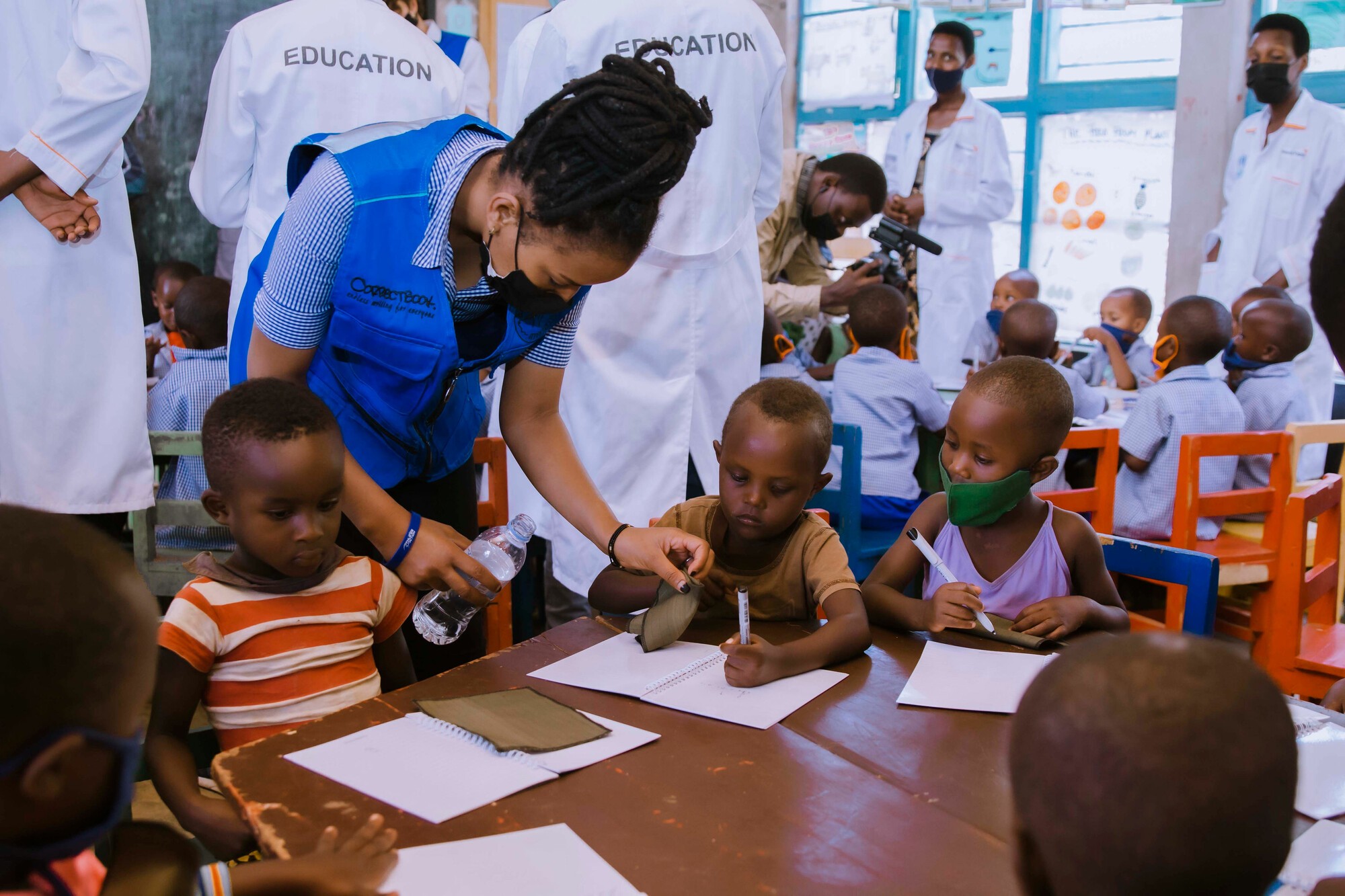
How does Correctbook contribute to this?
We donate 5% of our revenue to Correctbook Africa.
Together with NGOs, governments, and universities, we use these funds to provide schools with erasable writing materials. These are produced locally in Kenya, South Africa, Rwanda, and Madagascar ensuring the benefits go directly to the local communities.
Joy of Writing programme
In Africa, this approach focuses on one basic need: access to writing materials. Through our Joy of Writing programme, every child at school receives at least one year of continuous support. This means:
-
Damaged or worn-out notebooks are replaced free of charge
-
Extra pens, cleaning cloths, and ink refills are always in stock
-
Teachers and students are trained on how to use the notebooks
-
We monitor the use and stay involved with the schools
This way, children receive not just a notebook, but also the guidance and motivation to truly learn.



